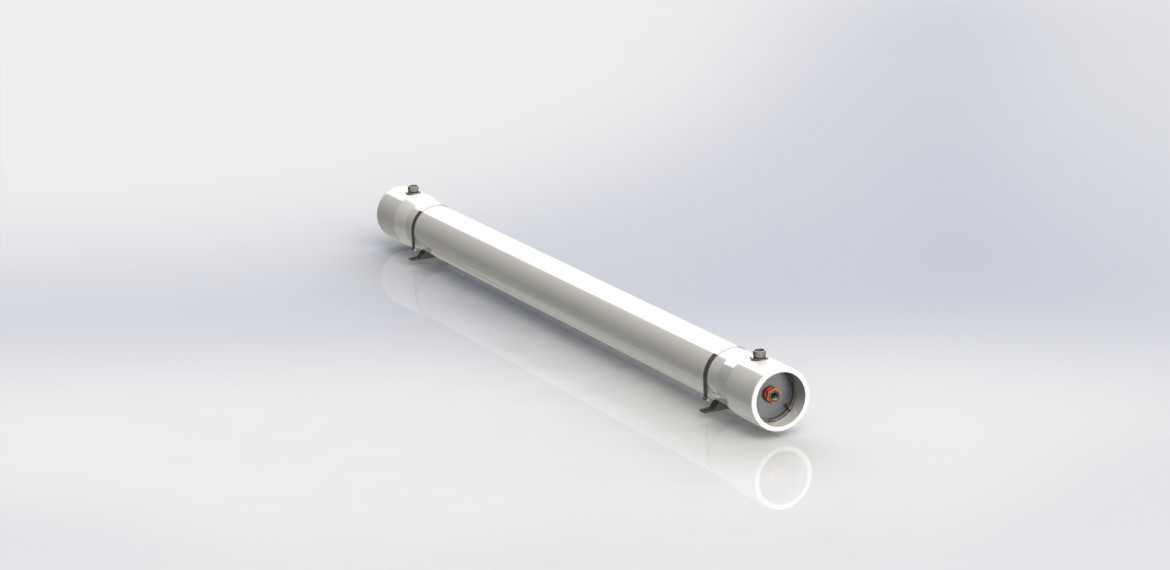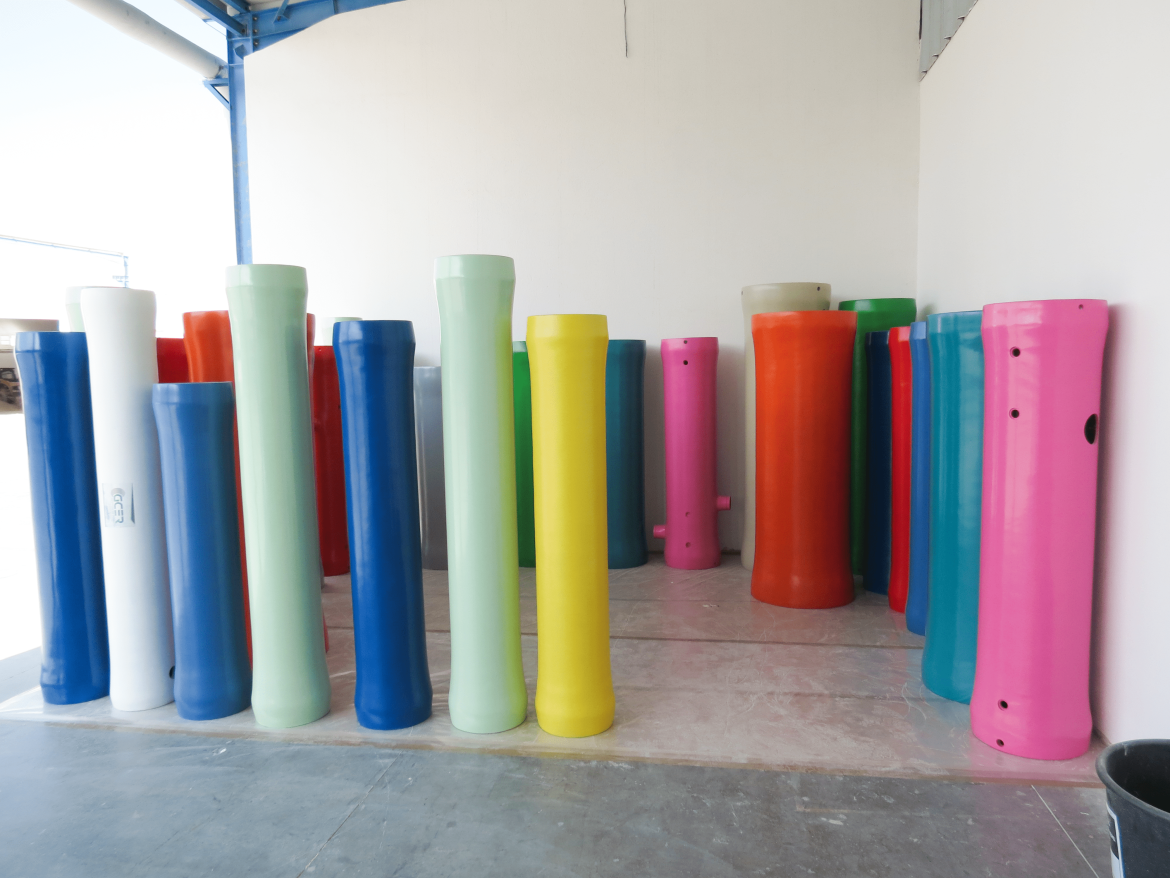

Membrane filtration is an advanced filtration technique distinguished by its ability to separate water from soluble substances such as oils, organic compounds, suspended solids and metals (particulate or ionic) using semi-permeable membranes. This technology is based on various membrane processes, each tailored to specific separation and purification needs.
Membrane filtration relies on the passage of water through a membrane, a semi-permeable material that allows certain substances to pass through while blocking others. The membranes used in these processes vary in pore size, ranging from a few hundred nanometers to several millimeters, which allows for the classification into four main types of membrane processes:
Microfiltration uses membranes with pore sizes between 0.1 and 10 micrometers (μm). It is primarily used to remove suspended particles, algae, and bacteria from water. This process is commonly employed in wastewater treatment.
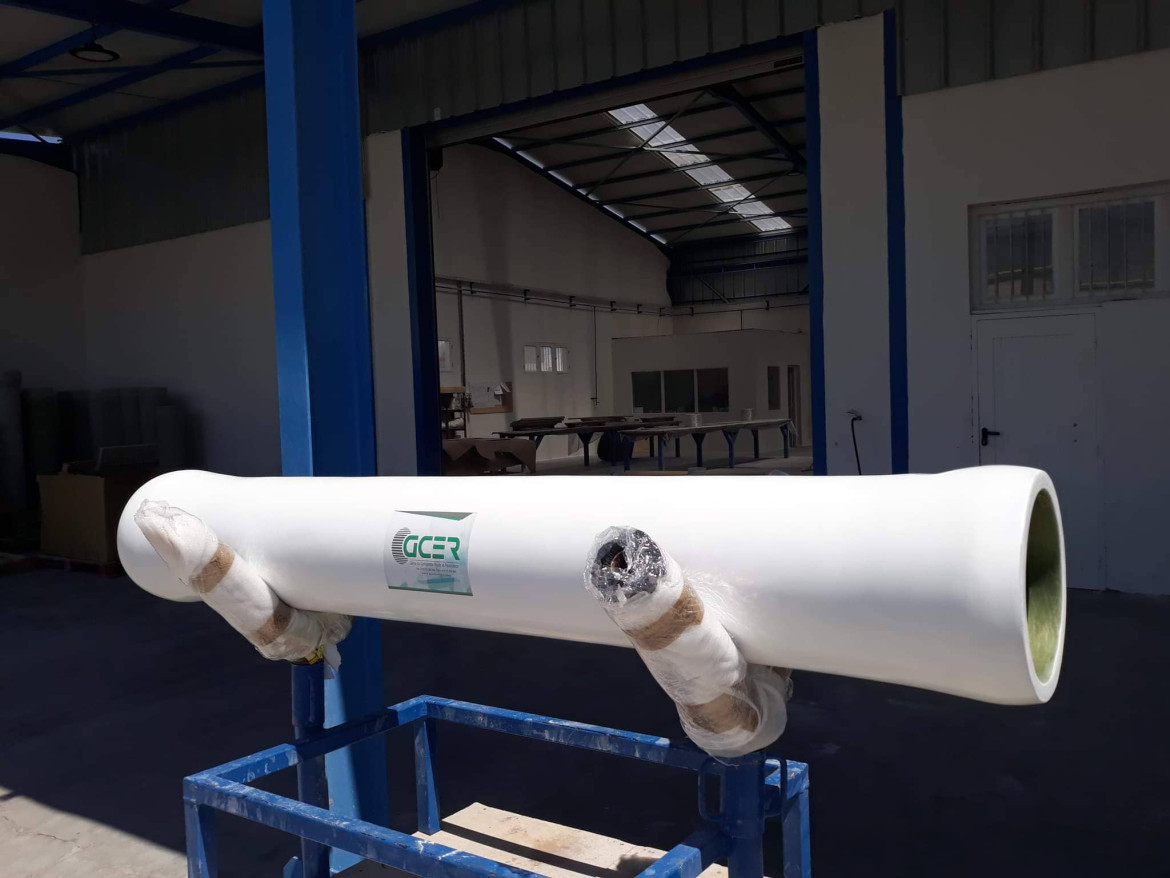
Ultrafiltration employs membranes with pore sizes between 1 and 100 nanometers (nm). This process is effective for separating proteins, viruses, and colloidal particles from water. UF is often used in wastewater treatment.
Nanofiltration uses membranes with pore sizes between 1 and 10 nanometers. This intermediate process between UF and RO allows for the separation of multivalent ions and small organic molecules. NF is commonly used for potable water production.
Reverse Osmosis is the most effective filtration technique. It can remove almost all contaminants, including dissolved salts and organic molecules. RO is primarily used for seawater desalination and the production of high-purity mineral water.
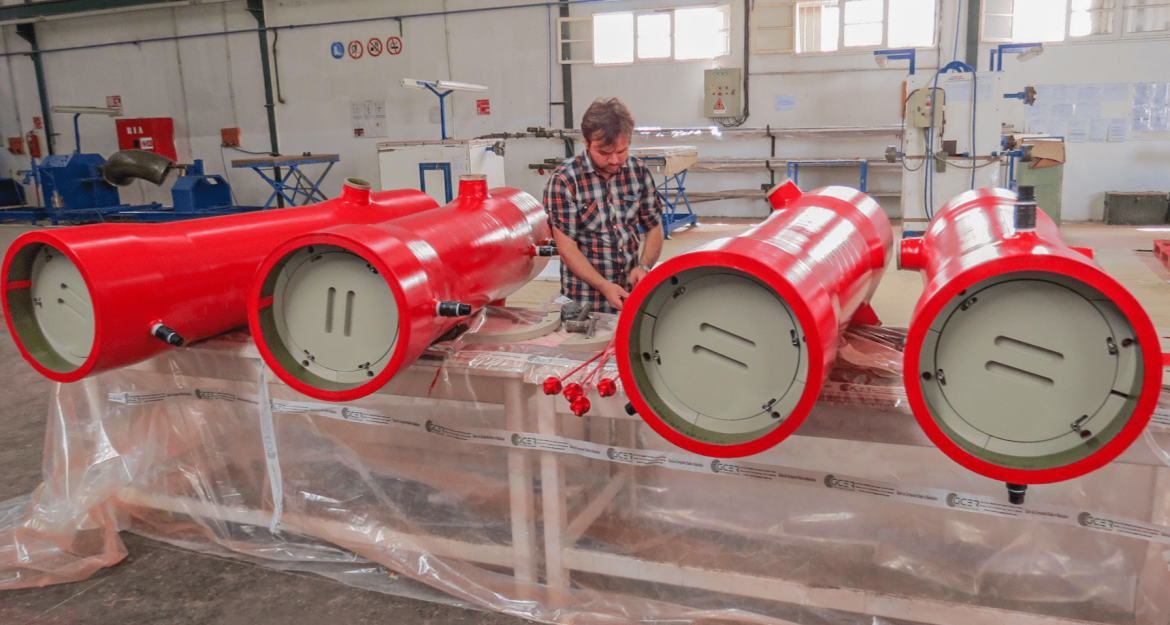
Membrane filtration are used in a wide range of applications :
Membrane filtration is essential in desalination, where Reverse Osmosis (RO) is used to remove salts and other contaminants from seawater, producing potable fresh water.
MF and UF processes are commonly used to treat wastewater, removing solid particles and micro-organisms.
NF and RO are used to purify water intended for human consumption, guaranteeing high quality and optimum health safety.
Membrane holders are designed to meet the most stringent international standards (ASME, DIN, etc.).
The design focuses on performance, durability and ease of use :
The ferrules of membrane holders are made from a combination of two types of fabric, offering optimum resistance to pressure and a thickness adapted to specific requirements.
Membrane holders can support pressures ranging from 150 PSIG to 450 PSIG, ensuring adaptability to a variety of industrial applications.
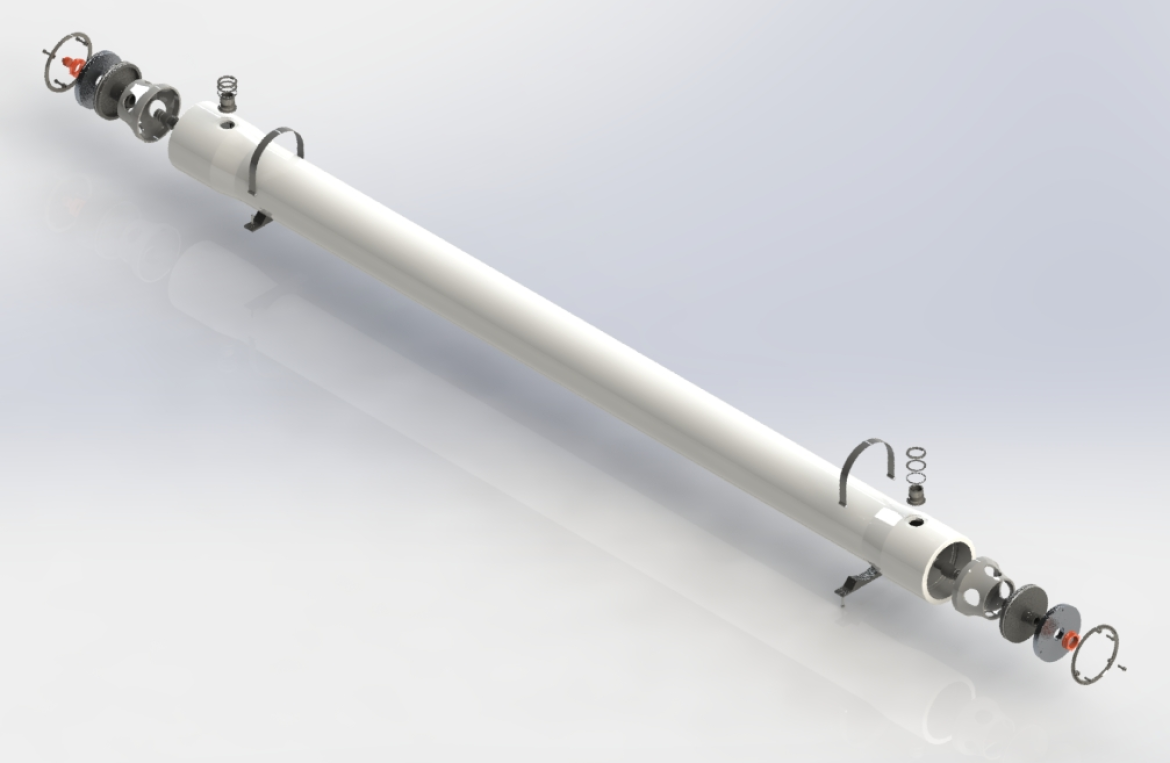
They are available in side port or end port configurations, providing flexibility based on installation needs.
The membrane holders are designed to accommodate standard membrane elements of 8 inches and 4 inches, offering compatibility with common equipment.
The exterior surfaces of the membrane holders are coated with a glossy polyurethane paint, ensuring increased UV resistance and a polished appearance.
Before shipping, each membrane holders undergoes a rigorous quality control process :
The membrane holders are tested at a pressure of 1.1 times the service pressure, maintained for 10 minutes, to ensure their integrity and safety under anticipated operational conditions.
Our shell manufacturing process achieves a mirror finish on the membranes, facilitating loading and unloading while optimizing performance and durability.
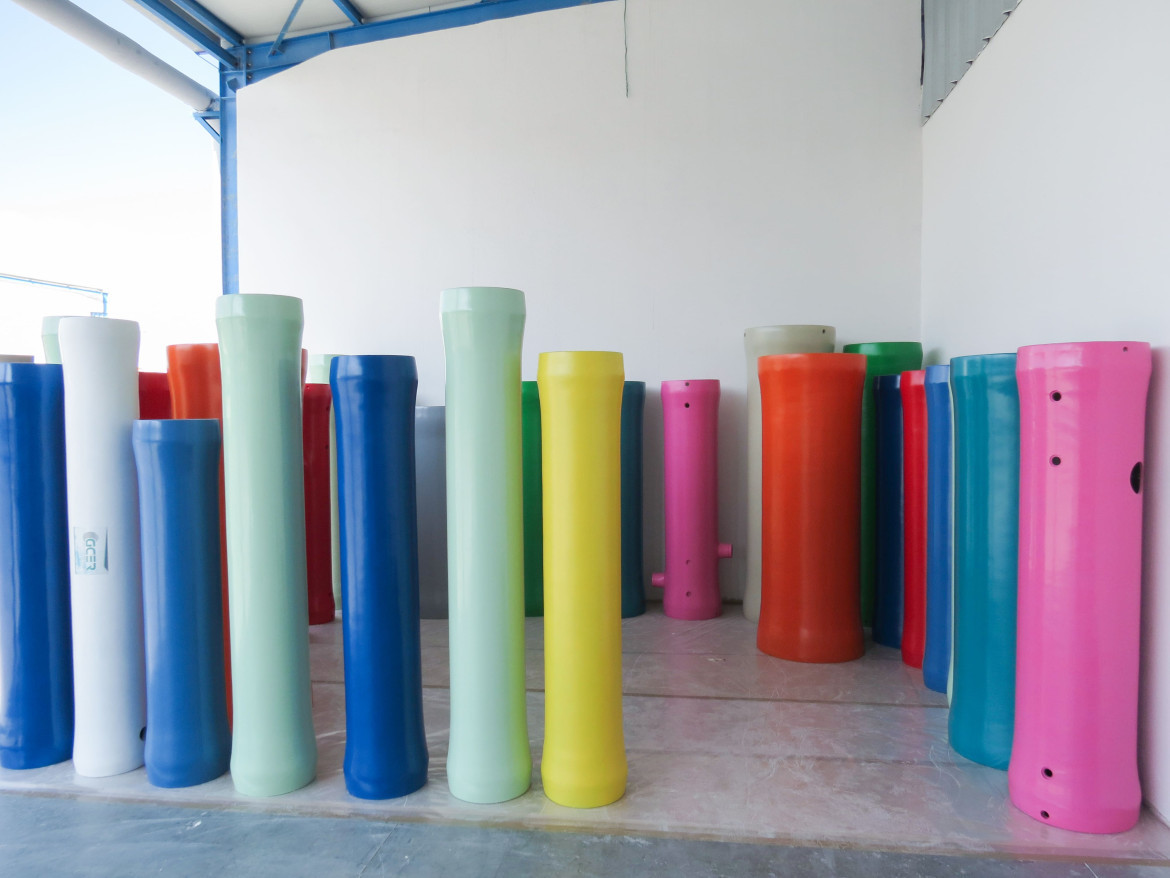
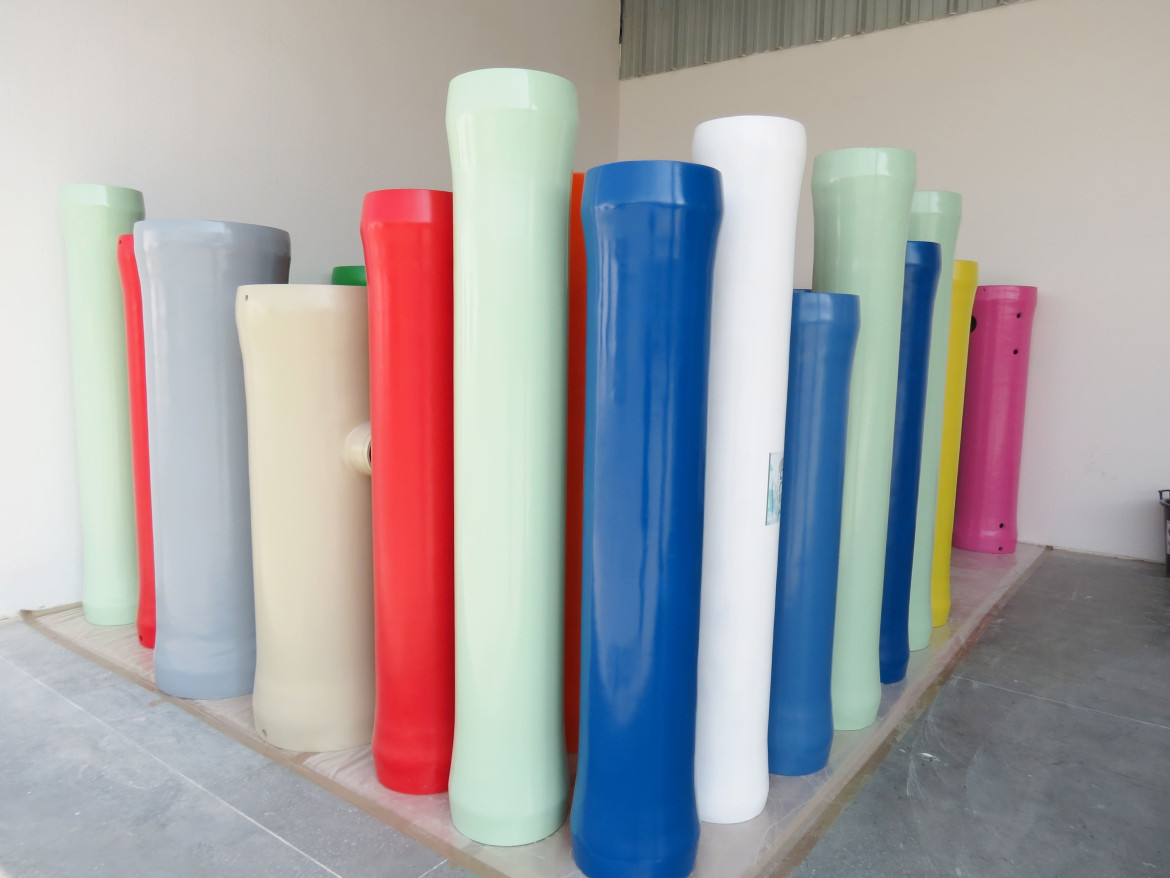
Designed for long-term continuous operation in critical and demanding applications, membrane holders ensure optimum performance and durability in demanding environments.
Every GCER pressure ferrule is carefully inspected and tested for defects and strength.
A final hydro-test is carried out to check for leaks and ensure compliance with safety standards before shipment.
Operating pressure can vary in the 150 PSIG to 450 PSIG range.
Membrane modules can house any type of standard membrane (8" and 4").
| 4" BOX | ||||
|
Model Specification |
END PORE | |||
| 40 EP150 | 40 EP250 | 40 EP350 | 40 EP450 | |
| Calculation Pressure | 150 PSIG | 250 PSIG | 350 PSIG | 450 PSIG |
| Number of Elements | 1 to 8 | |||
| 8" BOX | ||||
|
Model Specification |
SIDE PORE | |||
| 80 SP150 | 80 SP300 | 80 EP450 | 80 EP600 | |
| Calculation Pressure | 150 PSIG / 10 BAR | 300 PSIG / 20 BAR | 450 PSIG / 31 BAR | 600 PSIG / 41 BAR |
| Number of Elements | 1 to 8 | |||
To ensure optimal installation and operation, we offer high-quality accessories, each selected for its performance and durability. These components are essential for completing and enhancing systems, guaranteeing increased reliability and simplified maintenance.
